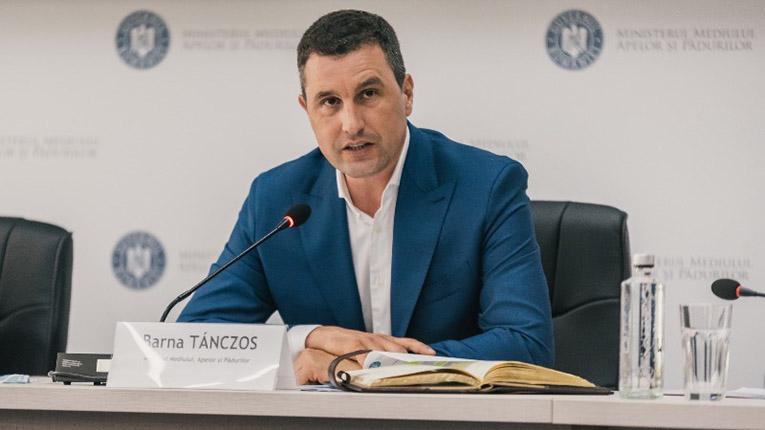The green economy solutions were accessible to everyone, but they were not important for anyone until the suffering generated by the bills came: the electricity and the heat bills, said the Minister of the Environment, Waters and Forests, Barna Tanczos.
“I would use the comparison and similarity between the PNRR reforms and the Revolution, because in many areas major changes are taking place before our eyes, but most or some of them are generated by suffering. As usual, every revolution comes after a very strong stimulus and it is enough to think now about the green economy and the prudent use of resources. They were available to everyone and available to the economic environment, and available to the common man. Green economy solutions were available, but they were not important to anyone until the suffering generated by the bills came: the electricity bill, the heating bill and there is another bill that is still not, it seems, oppressive enough, because we see the same number of cars in Bucharest as well, regardless of the price at the pump… But the suffering generated by the other two bills and the war catalyzed a revolution in the field of green resource consumption and special attention, increased, on the solutions, technologies with which companies, individuals, can escape this price pressure, generated by a European and world crisis of these resources. If we want to reach a green economy, we need the support of society and the support of businessmen,” said Tanczos, according to Agerpres.
He added that the Romanian state must come up with solutions and build alternatives for the development of the circular economy, but “reforms will not happen only if the Government wants it.”
“If we go further, another important component in the PNRR is the waste management component. The awareness at the level of every citizen and every enterprise of the importance of the circular economy and the reuse of resources has not yet reached a maturity that would generate the revolution on the part of society. And then the Romanian state must come to find solutions, on the one hand to build alternatives for the way waste is managed today by citizens, by companies, but on the other hand to come with those penalties, those fines in the field of waste, burning waste, burying waste, which will generate the revolution we need. If we talk again about water, such an important resource, clean water, drinking water, water that we can use hundreds of years from now. If we don’t have the alternatives on the one hand, we don’t have the waste water management infrastructure, but we also don’t have the reform in record and in the management of every household that does not have a waste water management system, we will not reach the revolution, we will not reach the reform and we need such a powerful tool as the PNRR to generate the changes. Reforms will not happen only if the Government wants it. For these reforms, a social movement is needed in certain areas, a generated will, a conscience or an external stimulus to support these reforms,” said the dignitary.
